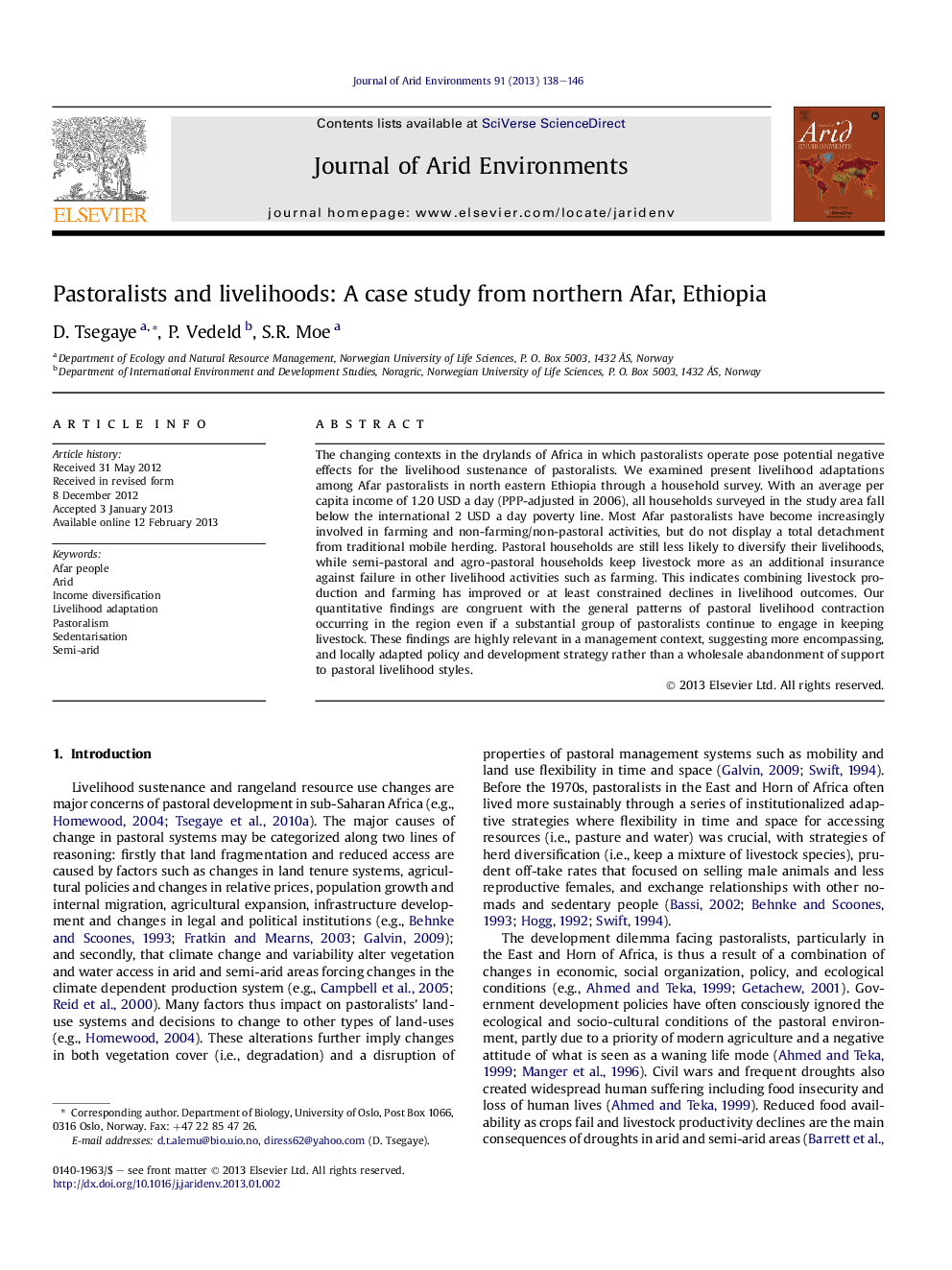| کد مقاله | کد نشریه | سال انتشار | مقاله انگلیسی | نسخه تمام متن |
|---|---|---|---|---|
| 4393216 | 1618266 | 2013 | 9 صفحه PDF | دانلود رایگان |

The changing contexts in the drylands of Africa in which pastoralists operate pose potential negative effects for the livelihood sustenance of pastoralists. We examined present livelihood adaptations among Afar pastoralists in north eastern Ethiopia through a household survey. With an average per capita income of 1.20 USD a day (PPP-adjusted in 2006), all households surveyed in the study area fall below the international 2 USD a day poverty line. Most Afar pastoralists have become increasingly involved in farming and non-farming/non-pastoral activities, but do not display a total detachment from traditional mobile herding. Pastoral households are still less likely to diversify their livelihoods, while semi-pastoral and agro-pastoral households keep livestock more as an additional insurance against failure in other livelihood activities such as farming. This indicates combining livestock production and farming has improved or at least constrained declines in livelihood outcomes. Our quantitative findings are congruent with the general patterns of pastoral livelihood contraction occurring in the region even if a substantial group of pastoralists continue to engage in keeping livestock. These findings are highly relevant in a management context, suggesting more encompassing, and locally adapted policy and development strategy rather than a wholesale abandonment of support to pastoral livelihood styles.
► We examined livelihood adaptations among Afar pastoralists in northeastern Ethiopia.
► Pastoralists are in transition to sedentary life but still attached to pastoralism.
► Agro-pastoralists earn more income than those remaining in a pure pastoral economy.
► The likelihood of remaining in pastoralism increases with wealth status.
► Households wanting to continue a pastoral system seek ecologically sound policies.
Journal: Journal of Arid Environments - Volume 91, April 2013, Pages 138–146